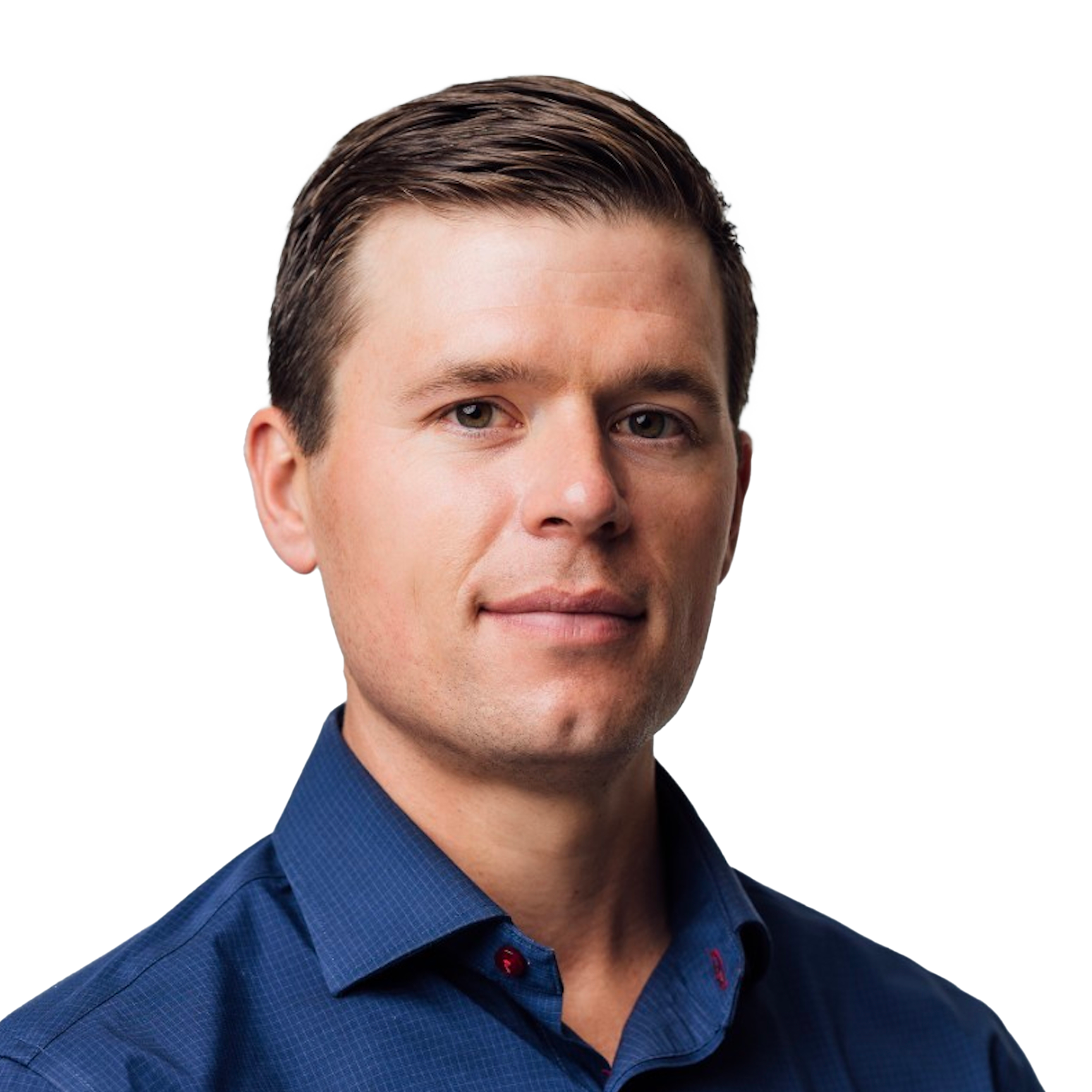
BACK TO PODCASTS
Ron Miller
Editorial Director
|
boldstart ventures
Episode #
27
Tracy Young sits down with Ron Miller, former TechCrunch journalist and now Editorial Director at Boldstart Ventures, to discuss his career shift and the state of enterprise AI. Ron shares how he overcame early skepticism about generative AI, ultimately recognizing its transformative potential for enterprise workflows. They explore practical strategies for AI adoption, including starting with low-risk, high-impact projects like automating release notes. Ron also reflects on how AI may reshape SaaS models and stresses the importance of leaders embracing change while supporting their teams. He closes with advice to stay curious and keep learning—because in tech, change is the only constant.

Podcast Transcript
[00:00:00] Tracy Young: Hi, welcome to Path to Growth. I'm Tracy Young, co-founder and CEO of TigerEye.
[00:00:04] Today we are joined by Ron Miller, editorial Director at Bold Start Ventures. And in my opinion, one of the best enterprise technology journalists. Ron, welcome. We're so happy to have you here.
[00:00:15] Ron Miller: Thank you. Thank you for having me. I just wanna say before we start that I interviewed you on stage at Tech Disrupt in New York in 2015, so it seems like it's funny here being interviewed by you now.
[00:00:30] Tracy Young: No, I'm so excited. You've actually interviewed me several times, this is really fun for me. To start, could you share what inspired your recent transition from TechCrunch to Bold Start?
[00:00:42] Ron Miller: Sure. At the end of August, I ended my time almost 10 years over 10 years actually at TechCrunch, and I moved to Bold Star and with as their editorial director and I.
[00:00:56] It was time for a new challenge after a decade at the same job. I wanted to try something new. I am closer to the end of my career than I am in the beginning. And I wanted to see if I could do something different before I reached the end of my career. And as I thought about what I wanted to do, I talked to a bunch of people, which I, people I consider mentors.
[00:01:21] And one person who, who has been you know. A special mentor to me said, if you're gonna do something like you, that you build or don't like, do a lateral move. Go to another publication and be the enterprise reporter there. Do something significant.
[00:01:39] And when this opportunity came along to build a blog and a newsletter and put my enterprise experience that I've built up, not just at my time at Tech Wrench even in the years before that to work, it was like it was something. That was too good to, to pass up and I made that transition.
[00:02:00] Tracy Young: And if our audience wants to follow you along this new adventure, tell them where they can sign up for your fast Forward newsletter.
[00:02:08] Ron Miller: The URL is fast forward. I. Like FAST forward, like in a tape recorder. Fast forward BOLDstart, that's B-O-L-D-S-T-A-R-T, BOLDstart vc. So fast forward BOLDstart vc.
[00:02:26] Tracy Young: Great. Let's talk about ai. So as a journalist, how do you distinguish between AI marketing hype? You look on every website, everyone's got AI something and reality. When approached by a company.
[00:02:41] Ron Miller: So it's not easy to do, and I think that my natural default state is skepticism, and until you can actually prove to me in some way that you can do it, then my default going in is that this sounds like maybe it's too good to be true.
[00:02:58] So the hype has to, you have to pass the hype threshold, right? For me, it's not easy to figure out, right? Because I'm not a computer scientist, I'm not an engineer. As a journalist people present you with ideas and some of them are going to catch your attention and you're gonna say, this is something that I haven't.
[00:03:20] Seen before. This sounds interesting and if it sounds somewhat implausible, then your job as a journalist is to push the the founder to describe it to you in a way that is understandable so that you can in turn write about it in a way that your audience can understand it. And over time with, if we're talking like broad trends, not a particular company you have to look at trends. In two ways. In one way, as a journalist, you're always looking ahead to what's coming, right? So you wanna know what's coming. You wanna be on the cutting edge. But on the other hand sometimes that cutting edge is just vaporware, right?
[00:04:03] So I'm we saw that to a large extent with Web3 and the Metaverse a couple of years ago. It was like all we heard about and then both of those things. Haven't amounted to much yet. So whether they will at some point in the future remains to be seen. But when it came to ai, generative ai, I should say, because I've been covering what I guess we can call traditional AI now for quite a while.
[00:04:31] But when it came to generative ai that came out Chachi PT came out in November of 2022, and I was like pretty skeptical about it for the first few months. I'm like yeah. This is just just the latest thing that we're being pushed. But, quickly as March, I was just like, okay, what is this about?
[00:04:53] And then I dug into it and I tried to understand it as best I could. So you have to just have a feel for it. What is worth covering? And some of it is you get past the marketing and you start to see. There's something that, that there's some potential there that is more than just hype.
[00:05:15] And then at that point you wanna cover it and that's what I would do.
[00:05:20] Tracy Young: But it sounds like it took a few months for it to marinate in and. Really settle in and for you to do some more research, maybe use some of the new generative AI tools for you to really believe in it.
[00:05:31] Ron Miller: Yeah, I mean it did take some prompting, but I tell you in, I dunno, it was March or April, I went to a conference.
[00:05:39] This is. 23 at MIT and Sam Altman and some other people, they weren't there. They were interviewed on video, but they spoke and when you heard how Manod Kla and Sam Altman were talking about this stuff, and then you heard people in the room who were working on stuff and it just felt like there was an energy there that the way there was something real.
[00:06:06] And there that this was gonna turn into something. And then once you start digging into a subject like generative ai, there's a lot to learn. So it was just like down a rabbit hole. And like I said, I'm not an engineer. I'm not a computer scientist, so I can only understand this to a certain degree.
[00:06:24] I dug into it to the extent I could and I tried to be able to write about it with some authority for my audience.
[00:06:34] Tracy Young: And I remember November 20, 20, 20 22. So while I think all technologists do, especially once building enterprise software, because at that moment it was my co-founder and I looked at each other and was like, wait, does this replace all enterprise software and does this replace everything we've been doing in the last year?
[00:06:51] And then it's about, wait, how are we going to. Ride this wave and adopt this new technology and adapt our product to, to make it to unlock it and make it even better. So what do you see as the most significant way AI is transforming how enterprises work today?
[00:07:08] Ron Miller: That's a big question and a tough question.
[00:07:11] I guess I would say if you look at it, it's gonna be about workflow and I think eventually, how does work flow through the enterprise, and if you think about how workflows develop, you're a business person. You've founded a couple of businesses and things just happen, has haphazardly in some ways inside organizations.
[00:07:36] Something happens and you're like, okay, I need to approve everything before it goes out because this one bad thing happened, right? And you'll see so this approval gets put in the loop or these things randomly get layered on and processes develop inside corporations.
[00:07:55] And once they're in place. It's hard to change processes, and I think that what AI has the potential to do is change how we do business and how work flows through business in a very significant way. And that is not trivial, but it's also not trivial to do because these processes are pretty hardened cross systems.
[00:08:23] And we saw with with companies like UiPath they tried to do it in a kind of rigid way to capture workflows and make them automated. With a agentic ai, the potential is there to take that and put it in a whole nother level of automation and really start to make workflows that are self-healing.
[00:08:51] If you think back to something like the macros of old where you would create a macro to do something and then something would happen, it would break and you'd have to rerecord it and I think that. Yeah. When you have something like agentic ai, the potential, and again, this is, you talk about hype versus reality 'cause we don't have a lot of stuff in place right now that's actually doing this, but the potential is that the AI will eventually be able to say, oh this broke, and I am gonna go back and figure out where it broke and fix it.
[00:09:28] But how that plays out and how that transformed. Workflows and how workflows through the enterprise is still something that's playing out and is very much a work in progress.
[00:09:39] Tracy Young: You get the opportunity to talk to so many leaders and heavy hitters in B2B. What qualities do the the savvy leaders have in, in terms of how they talk about AI adoption?
[00:09:55] Do you see there's a different style of leadership there?
[00:10:00] Ron Miller: I think that when it comes to any technological transformation, that it takes a specific kind of leader to implement substantive change, right? And so if you are trying to transform your organization, and like I was just saying, generative AI and agent ai, they have the potential to change.
[00:10:26] Very foundationally the way we work inside of organizations large and small, and to implement that level of change requires a spec, special kind of leadership, right? Because you're gonna have a couple of things that happen. I think on one hand, you're gonna have people who are really frightened of that kind of level of change.
[00:10:48] For a lot of reasons. People are complicated, first of all, and if you think about. How people see themselves inside organization and their roles inside organizations. For some people, information is power, right? And if your power base is based in your ability to know how to do this one thing and nobody else really knows how to do it, then you have this technology that can do just about anything.
[00:11:15] Your power is gonna go away. And that's scary to people, right? It's also scary. Fundamentally, because there's a lot of hype and headlines that this technology is gonna change jobs. Take jobs, not just change them. So if it eliminates jobs, is it gonna eliminate my job? Is it in my best interest to be cooperative here?
[00:11:36] And again, the kind of leader that has to be able to express to people that this is something that is for the. Betterment of how we do business. It's not an easy message to get across when you have that kind of fear and pushback. On the other side of that, you have people who think this is so great that it can do anything, and then they have unrealistic expectations about what it can do and how quickly you can get it done.
[00:12:05] And we can see that two years it's been over. Two years since that jet GPT was introduced by OpenAI. And when you look at the data there's a lot of companies still in the POC stage. There's a lot of companies that are trying to find their way, throwing a lot of money at it, but finding it difficult to get beyond that POC and into.
[00:12:34] Whatever comes after that. Some sort of scalable in-house solution. So the leaders have to look and say, okay, what are we gonna do? We should be doing this. Because I don't think you can ignore it. And I think that it has the potential to people who do ignore it. People have called it the electricity moment.
[00:12:54] If you think back to the early 20th century, there was electricity and there was steam and some, there was a debate that went on where some company. Owners were like no, I'm sticking with steam. And others were like, no I'm gonna do electricity. And people stuck with steam.
[00:13:11] They don't exist anymore. They a lot of the ones who switched to electricity probably don't exist anymore either. But you get my, my, my point is that. You know this is a sort of technology that is so transformational that I don't think you can ignore it. So as a leader, you have to look at things and say how are we going to implement this inside our company?
[00:13:35] And I think there's like a lot of throwing stuff at the wall right now and seeing what sticks. And we're seeing several. Studies that have said maybe 25%, 30% of companies are getting out of POC and into whatever comes next. 'cause they never quite define what comes next. But it's more than a POC, it's something that's in production inside the company.
[00:13:58] And if 75% of companies who are trying this, I'm having trouble getting to a point where they can implement it in a business workflow and have it be something that improves. Business outcomes that shows that this is really hard and it is gonna take a special kind of leader to look for things that are where you can have success and where you can start to push forward in small steps instead of trying to boil the ocean.
[00:14:30] And I think that's up to the leaders and the managers to define what's possible.
[00:14:39] Tracy Young: You've highlighted polarizing views on ai the hype versus practical applications. How can companies cut through that noise and focus on impactful, actionable AI initiatives?
[00:14:52] Ron Miller: Again, you know it when you have 75% of companies having trouble doing that, defining those, that tells you that it's not easy to do.
[00:15:03] And again, there's so many people with so many opinions about what should be happening, but I think the best way here. Forward is to look for something that you can be successful at. So look for, and again, this is my opinion as somebody who speaks to a lot of enterprise companies, but look for a project that is low hanging fruit.
[00:15:33] So I'll give you an example. I spoke to one CIO who said that she had been looking for different ways to implement generative AI inside our company, and they found that when they did new software releases, they would spend an inordinate amount of time creating the release notes.
[00:15:54] It would take several engineers working for several days to create these release notes. It was. Labor intensive to have engineers who are highly trained, who should be creating software creating the documentation so that they could explain to customers what had changed. And when they put generative AI to work on that, they put several days of engineering time, they cut that down to AB about a.
[00:16:24] Half a day and then another half a day of one engineer kind as a human in the loop, looking at the documentation and making sure that it was okay before they handed it out off to customers. I. And okay, we're going to test it in documentation. We're gonna see how many days it took before we're gonna see how many days it took after we're gonna see was it a positive business outcome?
[00:16:50] Yes. Everybody gets their documentation, they get it faster, it's cheaper for the organization, and it created a positive outcome. So I think companies need to be looking for. Whatever their documentation moment is to look at something that's easily measurable and ex. You can experiment with it.
[00:17:14] You can see if it works. And you know what? Don't try to do so much that it's hard to measure. It's hard to know. If it's good, and if it's not, try something else. So they talk about fail fast. I think with this stuff it's imperative to try and find those. Kinds of projects that you can experiment with.
[00:17:37] Look at it, see if it works. If it doesn't move on, if it does start to take it to the next level.
[00:17:44] Tracy Young: I love that example. It's so practical. You take a, just a scientific approach on a small subset of your process. That sucks, right? Like engineers wanna code, they don't wanna write, right? Anything you code engineer and I wanna be like you're just so great at technical writing, but also have a little bit of marketing flavor to it.
[00:18:03] It's like that's a rare engineer. And then you also look at what AI is. Really strong at natural language is one of them. Being able to process a lot of data that is way too overwhelming for a human to process. You look at what it's really strong at and the things that the humans don't wanna do, and then see, just bake off.
[00:18:23] We always say take the Pepsi challenge, just try it out. Do it your old way, do it the new way and then just look at how much time you can save and is it valuable enough for you to swap out this one piece of the process. 'cause as you said, it's so hard to change. Having run startups for almost 15 years now, it's just really hard to change old muscle memory.
[00:18:46] But a piece of it is doable, I think.
[00:18:49] Ron Miller: Yeah, and I mean it. It's really important that people look for things and look for something that has the beginning and middle and an end because we do see so many companies stuck in the POC phase, and you have to either figure it out or that it works or it doesn't.
[00:19:07] And if you don't, then you know, you're just gonna be going on this treadmill and never getting to a point where you can figure out whether you have something that can go into production or not.
[00:19:20] Tracy Young: You've spoken about AI attacking the SaaS value proposition which we've seen in the last decade being the main pricing model for enterprise software.
[00:19:30] How do you see AI reshaping traditional SaaS models and how can companies prepare for the shift?
[00:19:37] Ron Miller: So if you talk about hyper versus reality, so there there's a lot to unpack there. So the potential is this, that once we get to a point with ai. That you have these kind of intelligent agents who can look at things like, okay, let's look at a sales motion.
[00:19:59] They can look at the emails, they can look at the proposals and the decks and all of the kind of collateral that goes around a sales motion and say, and recognize, oh, this is a potential customer and. We should probably start recording information about this customer.
[00:20:20] Now that traditionally has been done in a CRM, right? Where it's often manual. You have this database, you fill out this form, this is the potential customer. And then with some automation, over time it's gotten a little bit easier. But as engineers who hate documentation, salespeople hate recording the motion around what they do because.
[00:20:45] They're paid to sell, and if they're doing administrative overhead, they're not selling right? So the idea is maybe at some point, what do you need a CRM vendor for? If you have this agent motion that's looking. At what's going on inside a company and recognizing this as a potential customer and recording it as a potential customer.
[00:21:09] And then you can ask questions of that and interact with that information without having this front end in front of it. So what is the value proposition of ServiceNow of. Salesforce of Workday that created this database of a specific type of information that put this front end on it. And they allow you to interact with these systems of record to, to find the information you need.
[00:21:36] And now with generative ai, we're starting to see where you can begin to ask questions of these systems of record. But the. Thinking is that and the Klarna, CEO is somebody who is, who came out with this idea, I think last year or earlier this year, that what do we need these big systems of record for if we can begin to collect this information and interact with it using ai, generative AI and agenda ai.
[00:22:07] But I think there's a bunch of things you have to look at there. Yes. Potentially you could begin to capture this information based on signals from the data, right? That's, there's definitely potential there to do that. And in some ways Salesforce type systems do that in an automated fashion to some extent now because the fact that salespeople hate entering information, right?
[00:22:35] But. Even if it can do that all it's gonna capture is what is in the digital pipeline. So if I have a meeting at a coffee shop or a conference or I run into a potential client somewhere that's not, that doesn't have digital, that exhaust then it's still up to the person. It's in their head.
[00:22:58] How do you get that into the system, and then. That's one issue that I think about when I think about this. But then the other issues are just around, it's not as if you can take all of a company's information, put it into a data lake, for lack of a better term, and then say, okay, I'm gonna just take all this information and I'm gonna let AI organize it, and then I'm gonna be able to ask questions of it.
[00:23:26] And. But there's still gotta be governance. There's still gotta be identity and access control. There's still gonna be security. There's still gotta be all these things that companies like Salesforce and Workday and ServiceNow and all these other SA vendors for better or worse for the high prices, for the complexity that they do very well.
[00:23:46] And that they, that large organizations. Really need, they need to have some structure. So who's gonna take care of all that? So when you say that I know you're not saying that, but when people say that maybe this technology could replace, I. Software as we know it, it's definitely gonna transform it.
[00:24:10] It's definitely gonna change it. But whether it's going to remove these vendors completely from the equation I'm not sure that will happen. Or certainly there will always be companies I think I. That want to buy instead of build, even if they whatever the system is. And they want to be able to call a company to understand when things go wrong, to, to understand how systems work.
[00:24:37] So yes, it could change it, but I'm not sure it will change it maybe as completely as some people are suggesting.
[00:24:44] Tracy Young: I agree with that. Do you think consumer AI tools like Chat, GPT are pushing enterprise AI development? Or is enterprise AI driving its own innovation curve?
[00:24:57] Ron Miller: Yeah I think it's both. And that's not a cop out.
[00:25:01] I just think it's reality. So Soche, GPT, definitely. We just had this discussion, right? It came out in November 22, and it just blew everybody's mind. You got it. It's completely changed the way. We think about humans interacting with software instead of going file blink dumb I have to push myself into the software process to make something happen.
[00:25:29] You had this. System that could go get information for you and even create things for you. From that perspective OpenAI completely changed how we think about software, even if you think about cloud and mobile and how the iPad transformed your own journey. All of those things had a huge influence and changed how we think about software.
[00:25:58] But I don't think. Anything I've seen has had this kind of transformative effect that Jet GPT has had. Now, that said a lot of people have caught up with that original vision just about any software. That you look at now that's enterprise driven and not enterprise driven is gonna have this kind of layer on top of it that at least allows you to interact with it and ask the questions in a way that just wasn't possible before this technology came along.
[00:26:30] So yes, it pushed it and it pushed it in the same way, like when we first had iPads and like we first had that. Touch interface and I remember going to conferences and suddenly everything was touch interface. It was like, wow, this just had a huge influence on how hardware vendors think about how we interact with machines.
[00:26:53] In a similar way it. The consumer tool that OpenAI created and opened up the imagination of everyone transformed the way we think about it. When you fast forward, if you're part of the expression a couple of years there's a lot going on now and we have the cloud vendors who are involved in this.
[00:27:16] We have software renders, we have this whole range of tools for different jobs and whether it's. Developers or marketing or sales just. Finance every aspect of how a company gets run and how companies begin to make use of that, whether and this becomes a huge build versus by question.
[00:27:44] Okay. For instance, I spoke to a CIO. Just this morning who created a sales tool on top of Salesforce. And I asked him why don't you just use Salesforce's ai? And he said, because it didn't really we have data and we have. Content. We have things that we needed to build into the system that just didn't come out of the box with Salesforce.
[00:28:14] So even with their intelligence layer, so they created their own thing, they there's that kind of consumer push. Then there's do you build or do you buy or do you do this kind of combination of things like this, CIO that I spoke to this morning did. And I think that's what's going on across technology, across, 'cause this is not just a obviously a technology industry thing.
[00:28:42] If you say every company is a software company, every company is a technology company now, and all of this stuff is gonna impact them and how they. Implement this gonna depend on their own capabilities, their own what their teams need and what their IT departments, their engineering, their internal operations teams are capable of accomplishing.
[00:29:05] Tracy Young: You mentioned earlier that for leaders as they go on this AI adoption journey they do have to. The Cognizant and more like respectful of their team because a lot of these tools might replace some of the jobs. And I think between open AI and all these researchers, they've really done a good job educating the market.
[00:29:26] That AI's going to reduce and eliminate some jobs. And so there's, I think there's like a natural fear, especially on front lines. What advice would you give either the organizations or even just the people who are so hesitant about adopting ai? Because of fears of whether it's gonna take over their jobs or just fear of it disrupting their jobs in a negative way.
[00:29:50] Ron Miller: It's hard I think from a management perspective, unless you're really cold, to give that message without expecting some fear and pushback and if you think about. Like I said there's stuff that you can do digitally that AI is gonna be able to pull threads and make decisions and draw conclusions.
[00:30:14] This is a sale this is I can see that this is a marketing message and like, how do we wanna repackage this? And we, we redo reuse this. But there are a lot of things that are still inside people's heads and. That's the part I think that you have to get people's cooperation because not everything is gonna be digital.
[00:30:39] And if you wanna implement this well, you have to have a complete understanding of the entire workflow and the entire way that the business operates. So I'm actually not totally convinced that huge swaths of jobs will go away. I think. The nature of jobs will change and that people will use AI to be better employees.
[00:31:07] But when I look at ai, and I can tell you, like the other day I was writing something, I'm not great at headlines. It's not my special strength. And I I always write these headlines that to me sound like academic paper titles, so I'm just like, okay I'll ask gemini or chat GPT or whatever, and they just come up with way worse headlines. And I'm just like no. And I will try to explain like I'm looking for something compelling. I'm looking for something clickable. I want something that people, that's gonna make people curious and they're just not good at it, or they don't understand my instructions.
[00:31:46] So the ability to write prompts. And be clear and get the information that you want outta these systems is gonna be a skill in and of itself. So I think that's what you have to. You have to move people towards, this is coming, so how do you be good at it? How do you, not to eliminate yourself, but to strengthen yourself, because I think, I'll give you an example.
[00:32:13] I was using chat, GPT, and I used the kayak plugin to look for flights and it was really good, but I asked it a very unclick question. I don't remember exactly what the question was, but I asked it an unclicked question and it gave me. A weird response and I understood that my question was unclear by the response, and I reworded it and it gave me a good, a better response.
[00:32:39] So you begin to learn how to interact with this technology, and I think you're gonna be better off than you are ignoring this technology or trying to hide from it because you know it is the future and. However it plays out, because we're really very much on the edge of this. You're better off understanding how it works than you aren't ignoring it.
[00:33:00] Tracy Young: Because it's not going away. And I love you sharing how you use AI for your job. I think about the best Ron Miller articles and it had a Ron Miller perspective. You think about. You attending Dreamforce and it was like your perspective on, on what's happening at Salesforce that AI could never come up with.
[00:33:22] And that was, that's what makes like a good article, a good piece of art, good piece of software. And at Tiger, I, we just believe that yes, AI will replace some jobs. There's just some jobs that doesn't make sense for humans to do when AI's like super good at it. And then for the rest of the jobs, it's going to be humans.
[00:33:43] Utilizing AI to supercharge themselves that will replace humans who don't use AI just because they're, this is now a new tool that they'll adopt and just be a better version of themselves.
[00:33:54] Ron Miller: When we talk about agents, right? We're talking about these kind of assistance. I think agent is a bad name and maybe we'll come up with a better one as an industry over time, but Salesforce talks about them as like digital employees.
[00:34:11] They're like, people work with your human employees to help. Them do their jobs. And when I talk about like administrative overhead, if you talk about a job like being a doctor or being a nurse practitioner in a healthcare setting and you talk to any one of these people who work in those settings, they absolutely.
[00:34:33] Detest the administrative overhead. And if you could have an AI assistant that helped reduce or eliminate much of that administrative overhead, it would allow them to work more with more patients and do the work that they like to do. And when I think about just my job as I've grown into this job at BOLDstart, I've.
[00:34:58] Been trying to put systems into place and there's a great deal of administrative overhead as I try to put my own work systems into place. And I just kept thinking like, man if there were an AI assistant who could like, put this in the Airtable for me or capture this in Evernote.
[00:35:18] For me, whatever my tools are wouldn't that be great? Cause I'm like working and I feel like I'm running hit and yawn sometimes and I wanna be writing, right? I don't wanna be doing the administrative overhead or I wanna be interviewing people. And so I think everybody feels that way about their job.
[00:35:37] There's certain aspects of the job if it went away and nobody would miss it because it would allow you to be a. They had more time to do the part of the job. That is the essence of the job and what you wanna be doing in that job, and hopefully that's where we get to with this technology.
[00:35:55] Tracy Young: Ron, I can talk to you for another hour, but we're gonna wrap this up.
[00:35:59] What advice would you give Ron Miller 20 years ago? As a parting gift? As a parting gift for our listeners.
[00:36:09] Ron Miller: Oh my God, that is a hard one. I would say continue to be curious. Continue to want to learn and figure things out and that's what I try to do anyway. It's funny because I think back.
[00:36:25] The arc of my career and my goal when I got outta school was to be a journalist and I took a crooked path to become a journalist. It took about 15 years for me to get there. And I was like a technical writer for a long time and I felt if I had become a journalist when I first graduated, I might have become very cynical about the technology that developed around that.
[00:36:51] But I didn't because I came at it a little bit later and I was really curious about the technology and I think, I guess I wouldn't, it wouldn't be advice I'd give to me, it'd advice I'd give to other people is like to be curious and to have that desire to keep. Figuring things out because everything's always changing and don't get cynical about that.
[00:37:16] Don't take it for granted and don't think you know it all. 'cause you never do.
[00:37:22] Tracy Young: It's so true. I think that is excellent advice for our listeners. Ron, thanks for joining us today. I had a great conversation with you and it's so good to see you again.
[00:37:31] Ron Miller: Thanks so much for having me. It was a great chat.

.png)













